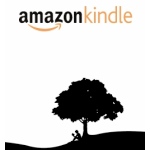
“Supporting” HTML5 may have as multifarious a definition as “supporting” the Republican Party. It does automatically hoist the supporter to an exalted plateau in the public eye, alongside Apple, Google, Microsoft, Adobe, and Opera Software, all of which have also pledged their undying support for HTML5. But without exception, all of these companies support some unique aspect or concept which, in the absence of a hard standard, may successfully be characterized as HTML5.
The positive side of Amazon’s support is that it utilizes many of the CSS stylesheet formatting codes with which Web developers are already intimately familiar. The Mobi 7 format encoded content in a format that was best suited for packaging and transmitting to a small device with limited bandwidth and cramped memory. New Amazon Kindle Fire developers will be able to stare directly at KF8’s markup code and know instantly what it means.
But embracing Web standards is not among publishers’ top goals, not just because it isn’t exactly clear at any one time what those are, but also because by definition, the Web is malleable. From publishers’ perspective, an e-book is a book under a new production and distribution model; and whether it’s delivered to your browser or to a Kindle or iPad, its virtual texture should at least try to approximate its physical one.
The other HTML 5
In a comment last August for MIT Technology Review, Joe Wikert, a publisher at O’Reilly and historically one of the Kindle brand’s most ardent supporters, shared his disappointment that Amazon had not continued on with a proprietary Kindle book format that would have competed with another of the industry’s emerging standards, EPUB. He noted that EPUB is a free and open standard, but added he believes EPUB offers a richer reading experience than Kindle.
The reason for that was confirmed two weeks ago, when the International Digital Publishing Forum finalized its EPUB 3 standard. In so doing, its member publishing agencies reaffirmed what the finalized specification specifically calls “support” for HTML5.
As IDPF defines it, “HTML5 support” includes incorporation of features like the MathML mathematical symbol markup library, JavaScript, and embedded multimedia including rich video and audio. O’Reilly author Matt Garrish, in his short e-book entitled What Is EPUB 3?, writes: “That EPUB 3 is based on HTML5 means that you have the audio and video elements available to you for embedding multimedia content directly into the flow of your document. Always wanted to create a science textbook with audio directions and video demos so that students don’t have to muddle their way through graphics and lists of instructions? Well, there’s nothing stopping you now. Want to add an audio clip of Martin Luther King Jr.’s ‘I Have a Dream’ speech to your textbook on the Civil Rights movement? Now you can with no special player needed.”
Native audio and video without reliance upon any one manufacturer’s technology or set of codecs, was one reason the whole HTML5 movement was launched in the first place. It’s not inconceivable that Amazon could incorporate these elements into a future Kindle format at some point, but for now, the company explicitly defines its version of HTML5 support as a list of recognized markup tags and CSS formatting codes.
The other, other HTML 5
Up until a few months ago, the three principal emerging standards for e-book publishing were Mobi (Amazon’s format, now abandoned for KF8), EPUB (whose version 2 was abandoned in favor of a wholly new EPUB3) and PDF. While the first two have embraced their respective visions of HTML 5, a fourth option may yet rear its head: HTML 5 itself, the actual set of W3C standards. Throughout this month, contributors to W3C led by Opera Software have been actively contributing to an emerging new component called CSS Generated Content for Paged Media. Currently in the draft stage (as is much of the rest of HTML 5), the component would include powerful new codes for incorporating pagination, headers and footers, citations and cross references, multi-column floating elements such as pull quotes, and framing and layout for scalable presentations.
Naturally, Opera will be the first to exploit these new and as-yet-incomplete features, with its experimental software called Opera Reader, distributed as an extended version of the current Opera Web browser.
“Opera Reader works via some specific CSS3 extensions that turn your usual endlessly scrolling single page of content into multiple pages that can be navigated between,” write Opera’s Hakom Wium Lie and Chris Mills, the new component’s leads at W3C. “You are able to control the page browsing via swiping the page in different directions on touch screen devices, using the arrow keys and the PgUp/PgDn keys on a device with a keyboard, and by activating the on-screen control buttons in any way you choose to do so. If you have a mouse, you can also navigate by dragging pages.” Lie and Mills add that this changes the ordinary function of the mouse, from selecting text to moving it, although this may not be the final behavior of this component.
“Mankind misses the beauty of a nicely laid out page,” writes Opera’s Chris Mills in a company blog post. “We’ve more recently seen a step in the right direction, with a proliferation of e-reader devices (such as the Amazon Kindle) with ‘next page’ and ‘previous page’ buttons allowing users to read e-books in a more ‘book like’ fashion. But the Kindle is a walled garden: wouldn’t it be beneficial to have an open technology that allows us to present any content we choose in this manner?”
Door #1, Door #2, or Door #3…
Former tech magazine publisher, now industry consultant, Martin Taylor is familiar with the history of technology formats, especially with how certain manufacturers “embrace” something customers already like, only to “extend” it toward their own walled gardens. In a post Tuesday for the New Zealand-based industry blog eReport, Taylor sounded an alarm with a familiar ring:
“It will certainly be in Amazon’s interests to make sure that e-books look and function as well on a Kindle as they do on an EPUB3-compatible e-reader,” Taylor wrote. “What we still don’t know is whether Amazon might use its current dominance to lead, rather than follow, the industry standard. We’ve seen this in the ‘browser wars’ that for many years saw Web browser vendors, especially Microsoft, introducing non-standard features to try to keep users in its camp and drive the standards in ways that suited their interests. Could we be in for the e-reader wars?”
Source Read Write
Most Popular Tech Stories
- Kelly Betting – How It Works and the Kelly Criterion Explained
- What are Pokies? – The Latest Guide to How Pokies Work in Australia
- AI industry needs annual revenues of more than the UAE’s GDP to offset costs
- Pepe Unchained Meme Token ICO Hits $2 Million – Could PEPU See a Post-Launch Surge Like PEPE?
- 4 Best Meme Coins to Buy with 100x Gains Potential – Top Picks for July 2024
Latest News
Does AI increase productivity at work? New study suggests otherwise
Artificial intelligence software reduces productivity and harms the working environment, according to a study from the freelance platform, Upwork. The findings appear to question how AI is being deployed at...

















